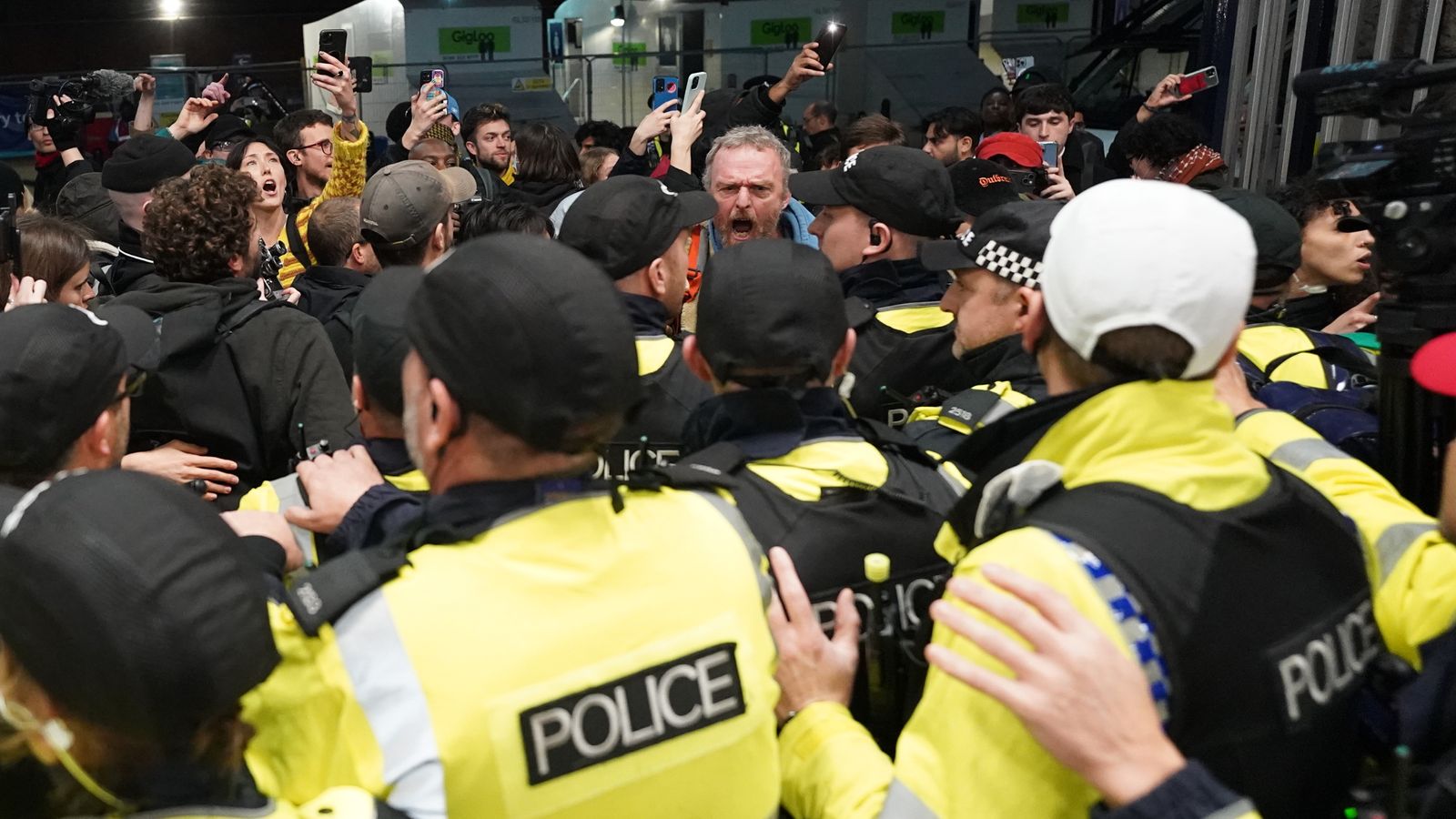Vaccines – not lockdowns – should be able to control the coronavirus pandemic, experts have said, as they released major new research showing that jabs cut infection and are likely to reduce transmission.
So far, more than 33 million people have had at least one dose of a vaccine in the UK, while 11 million have had two jabs.
Some initial research from the UK has found that a single shot of either the Pfizer-BioNTech or Oxford-AstraZeneca vaccination leads to a two-thirds drop in total coronavirus cases and a 74% drop in cases which are symptomatic.
Following both doses of Pfizer, there was a 70% fall in all COVID cases, and a 90% drop in those which were symptomatic. People who are symptomatic are most likely to spread the virus.
Experts are still collecting data on two doses of AstraZeneca but say their findings show that both vaccines work and are effective in the real world.
One of the new studies, which has yet to be peer-reviewed, is based on data from the national COVID-19 Infection Survey run by the University of Oxford and the Office for National Statistics (ONS).
They collected more than 1.6 million swabs from at least 373,000 adults across the UK between December and April.
Professor Sarah Walker, from the University of Oxford and chief investigator for the survey, believes it suggests that vaccines could slow transmission and are also effective against the Kent variant.
She added she was “cautiously optimistic” the vaccine could be used to control the pandemic going forward.
She argued that “lockdown isn’t a viable solution” in the long term and vaccines are “clearly going to be the only way that we are going to have a chance to control this long term”.
However, the professor did say the “virus is very good at throwing us curveballs” and “we’re always going to be one small step away from the potential for things to go wrong again”.
Dr Koen Pouwels, a senior researcher at Oxford University’s Nuffield Department of Population Health, said the experts were “fairly confident” vaccines reduced transmission of the virus.
“However, the fact that we saw smaller reductions in asymptomatic infections than infections with symptoms highlights the potential for vaccinated individuals to get Covid-19 again, and for limited ongoing transmission from vaccinated individuals, even if this is at a lower rate,” he said.
“This emphasises the need for everyone to continue to follow guidelines to reduce transmission risk, for example through social distancing and masks.”
Subscribe to the Daily podcast on Apple Podcasts, Google Podcasts, Spotify, Spreaker
Meanwhile, Microsoft co-founder Bill Gates has told Sky News that the world “didn’t prepare for this pandemic nearly like we should have done”, but that vaccines will help people get back to some normality.
He also revealed how his organisation ACT-A has helped mobilise resources to play a part in bringing the pandemic under control.
“As the pandemic struck… there was a realisation that this was a global problem and that we need to orchestrate resources on a global basis, and so particularly the UK, France and Germany came together with other actors like the WHO and our foundation [ACT-A] and said ‘ok, what are the vehicles we can use?’,” he said.
“CEPI [The Coalition for Epidemic Preparedness Innovations] was there to do vaccine research; GAVI [The Vaccine Alliance] to buy vaccines; Global Fund for therapeutics including oxygen. And that’s what ACT-A is – it’s taking all of that additional resources and coordinating it on a global basis.
“It was super valuable that we did that because we didn’t prepare for this pandemic nearly like we should have. We’ve been learning as we’ve been going, but I’d say the good news is that partly because of the ACT-A efforts, partly because of US R&D money, we have the vaccines and the end will come for this pandemic.”
Watch Bill Gates’ full interview on the Sophy Ridge on Sunday programme on Sky News on Sunday from 8.30am.




